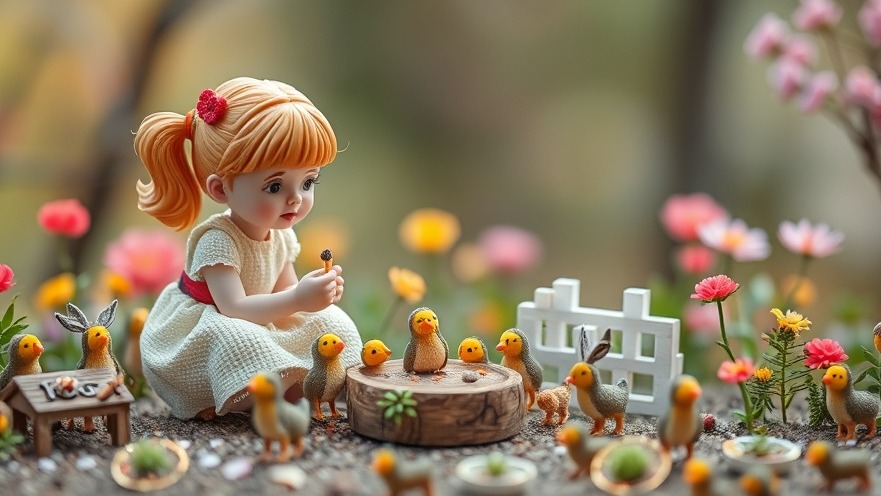
Unpacking the Importance of Sibling Relationships
Sibling relationships, often marked by a unique blend of competition and camaraderie, are foundational to a child's growth and development. According to developmental psychologists, these relationships play a crucial role beyond mere companionship. They influence emotional stability, social skills, and cooperative behaviors that persist into adulthood. Understanding the dynamics of sibling relationships can help parents foster a more supportive environment where cooperation thrives over rivalry.
Why Play is Essential for Sibling Bonds
As children navigate their formative years, play serves as not just a recreation tool, but a fundamental aspect of their development. Engaging in cooperative play allows siblings to connect on deeper levels, nurturing their emotional intelligence and interpersonal skills. Toys that encourage collaboration—like building sets or musical instruments—can serve as bridges, facilitating interactions that cultivate understanding and empathy.
Choosing Gifts That Promote Unity
When selecting gifts for siblings, prioritize toys that encourage cooperative engagement. The best options include:
- Musical Toys: Instruments that require joint participation, like keyboards or rhythm games, can create music together, combining creativity and fun.
- Building Sets: Toys that require teamwork, such as LEGO sets, allow children to collaborate on projects, enhancing problem-solving skills.
- Role Play Kits: Sets that simulate real-life scenarios encourage imaginative play and help children understand each other's perspectives.
All of these encourage siblings to work toward a common goal, fostering unity rather than rivalry.
The Developmental Benefits of Cooperative Play
Engaging in cooperative play offers numerous developmental advantages:
- 1. Teamwork and Cooperation
- Children learn to collaborate and appreciate the strengths of others, a skill vital for future group activities in school and beyond.
- 2. Conflict Resolution
- Disagreements are commonplace during play, but they also serve as lessons in negotiation and compromise, essential tools for managing conflicts later in life.
- 3. Emotional Intelligence
- Playing together helps siblings express their feelings, understand emotional cues from others, and develop empathy through shared experiences.
For instance, while solving a puzzle together, children not only work on cognitive skills but also learn cues that enhance their emotional understanding.
Strategies for Encouraging Cooperative Play
To promote cooperative play among siblings, consider the following strategies:
- Structured Group Activities: Organize family game nights or projects that require everyone’s involvement, allowing children to discover the joys of sharing and collaboration.
- Model Positive Behavior: Parents should demonstrate collaborative behaviors in their everyday lives, providing children with examples to emulate.
- Set Clear Guidelines: Clearly outline rules regarding sharing and taking turns. This will help reduce potential conflicts and establish expectations.
These strategies not only facilitate play but also create a safe space where siblings can interact respectfully and happily.
Sharing: The Core of Sibling Dynamics
Sibling relationships thrive on the principles of sharing and taking turns. When children share toys, they engage in acts of generosity and develop a sense of community and understanding. This reciprocal exchange fosters a lifelong appreciation for collaboration. For instance, when siblings choose to share their favorite books during quiet time, they cultivate empathy, enhance their communication skills, and reinforce their bond.
Conclusion: Building Lifelong Bonds
In summary, investing in cooperative play through thoughtful gift-giving and constructive interaction strategies can significantly strengthen sibling ties. By choosing gifts that promote collaboration and employing techniques to encourage cooperative play, parents can help forge resilient relationships that last a lifetime. Watch as the joy of shared play creates a vibrant atmosphere of learning and loving among siblings.
So, as you think about the gifts that can unite your young ones, remember: it’s often more about which experiences you create together than the individual toys themselves. Start engaging your children in shared play today—help them discover the beautiful bond of siblinghood!
 Add Row
Add Row  Add
Add 




 Add Row
Add Row  Add
Add 

Write A Comment